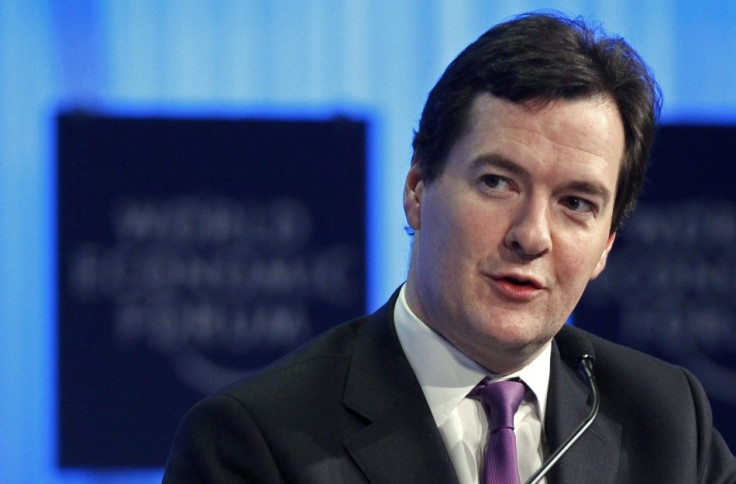Britain hikes bank levy

The British government said it will increase the levy on banks by £800-million to £2.5-billion this year – and that it will be permanent.
Chancellor of the Exchequer George Osborne said the tax was being hiked before banks could unveil their bonus payments.
Originally, Osborne had said the new bank levy would be phased in slowly and at a lower rate.
The initial rate amounted to 0.05 percent of bank profits (which was expected to raise £1.7-billion. Under the higher levy, starting March 1 the rate will be at 0.1 percent for two months, before moving to 0.075 percent, according to the Treasury.
Under the new levy, the Treasury expects to generate the aforementioned £2.5-billion this year and next; and then rising to £2.6-billion in each of 2013 and 2014.
We want more lending, [banks] to pay more tax, make a bigger contribution to our society and pay less bonuses next year, the Chancellor told BBC radio.
The bank tax will apply to both UK banks and the British operations of foreign banks. However, lenders with a balance sheet below £20-billion will be exempt.
Separately, a deal between the government and banks under which the latter would increase business loans and impose a cap on bonus payments – also known as ‘Project Merlin’ -- has not yet been completed as negotiations have stalled.
Under terms of these proposed agreements, British banks would make £190-billion of credit available to businesses, as well as provide financing for middle-sized businesses in poorer parts of the country, and also limit bonus payments to senior executives.
The Financial Times reported that the coalition government believes that under this scheme, banks would be able to provide £1.3-billion over the next three years to parts of Britain worst hit by spending cuts, in addition to the £1.5-billion Business Growth Fund already announced last year.
What really matters is if we get a measurable and significant increase in lending to small and medium-sized businesses,” Osborne told BBC radio.
That's what people will want to look at when we conclude a deal, if we conclude a deal.
Limiting bonuses paid to banker remains a touchy subject – UK banks will start revealing the value of their bonus rewards next week. Press reports indicate such payments could be as high as £6-billion or more – far more the amount the next levy would generate.
It would have been better if, when we were bailing the banks out, we had secured something from the banks in return,” Osborne added, in reference to bank bonuses.
“Unfortunately I was not chancellor at the time.”
Ed Balls, the shadow chancellor, has criticized Osborne’s plan as hurried and panicky and that it amounts to a damp squib because the coalition did not re-apply Labour's 2010 bonus tax.
Without this bank bonus tax - and with the banks set to benefit from a corporation tax cut - George Osborne has actually delivered a tax cut for the banks compared to last year, even after today's announcement, Balls told Sky News. This panicky announcement seems to be a fig leaf to hide George Osborne's failure to get a deal on the Project Merlin talks with the banks.
Unions also questioned Osborne’s announcements.
The effort to present this bank levy as a punishment for the banks is pathetic, the money returned to the Treasury is a pittance, while bonuses are chucked around like confetti,” said Len McCluskey, general secretary of Unite, was quoted as saying.
This levy does nothing to fundamentally reform banking in this country and effectively Osborne has been paid to go away. This is a shameful reflection of how lacking in muscle this government is prepared to be when it comes to holding the financial services sector to account.
Similarly, Bob Crow, general secretary of the Rail Maritime and Transport union, said: This new levy is a drop in the ocean. While £6 billion is being creamed off in bonuses as nurses are being sacked, this gutless government stands idly by and barely lifts a finger.
From a different viewpoint, some business leaders have their own concerns about the bank tax.
Changing the tax goalposts also makes things harder - all organizations want a predictable tax regime so they can plan their businesses accordingly and constant chopping and changing risks making the UK a less attractive place for businesses to operate, the British Banker's Association stated.
© Copyright IBTimes 2024. All rights reserved.





















